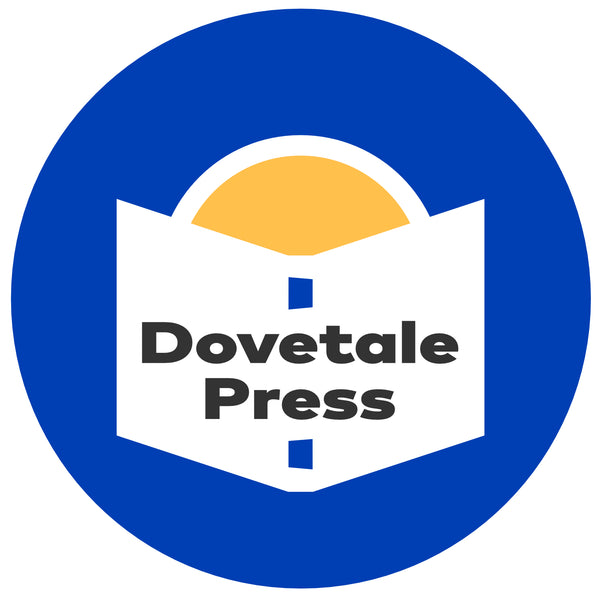Written by Gill, Editor, Dovetale Press.
Dear Readers,
It's a great pleasure to address everyone who believes in the power of reading. Sally and I have always believed in the power of reading, not only to transfer information but also to transport the reader of fiction to another world—that of the writer's imagination. In this world, we find ourselves not only in a new world of facts but also in characters with personalities, and these personalities create a world of plots and histories.
As readers, we find ourselves involved in these histories and characters as if we knew these characters as real people or even friends we have known for years. We feel joys and sorrows for them and fight battles for them.
And yet, we know this is not real. If we wish, we can exit from the fictional world — often to experience in our own life the joys and sorrows practised in fiction. This is the overwhelming power of reading.
It has been widely assumed that people living with dementia cannot really read because their short-term memories are impaired, and therefore, they cannot remember what they have just seen on the page. Sally and I questioned this assumption, and in 2014, we set up a first study with the hypothesis that many people living with dementia can still benefit from reading timeless classic fiction.
We started by studying the reactions of a small group of people living with moderate to severe dementia. We then shared readings from Dickens' "A Christmas Carol" with the group in three ways: the original story in large print, a version written and illustrated for children, and a version simplified stylistically and using simpler words than the original.
We asked them which they preferred. They did not like the children's version, which they said infantilized the experience. They also did not like the version that had been simplified stylistically and used simpler vocabulary, as it did not entice them. The one they liked the most was the original Dickens, although they thought it was long. But they loved the actual Dickensian writing.
For example, Dickens describes Scrooge as a "tight-fisted hand at the grindstone" and a "clutching, covetous old sinner." When this was read to the group, one lady exclaimed, "Piss off, you old bastard", and all were interested in the meaning of 'covetous'. One perons explained, "It's when you take something and keep it." There was agreement that one should not do this kind of thing; it was clear that they were making a moral judgement and responding with great enthusiasm to the words themselves. So these critics could not only understand the words, but also the concepts.
From then on, we realized that the main barrier was the length and density of the story, not the readers' ability to read (or be read to). We began to adapt classic fiction using the following formula: We would reduce the length and make each double page an experience in itself. Still, we would not remove the author's unique style, which was exactly what the readers wanted.
I shall bring in a personal experience here. Recently, I have had two strokes, and one of them has left me with partial vision. I have found this difficult, particularly as my career is mainly based on reading and writing. I have discovered how extremely important reading is to my view of life. I've been very fortunate to be 'adopted' by the Blind and Low Vision New Zealand group. They have given me an 'Alexa', through which I can access their audiobook library, which has made a huge difference. I can also clearly see how important discussing books and their concepts is. It keeps communications going and makes me think of new connections. And this is so important! So Sally and I are also considering doing "audios' of our books.
Please, dear friends, keep reading and encouraging everyone in your circle to do do. It has enormous benefits.
Yours truly, Gill
Editor, Dovetale Press
